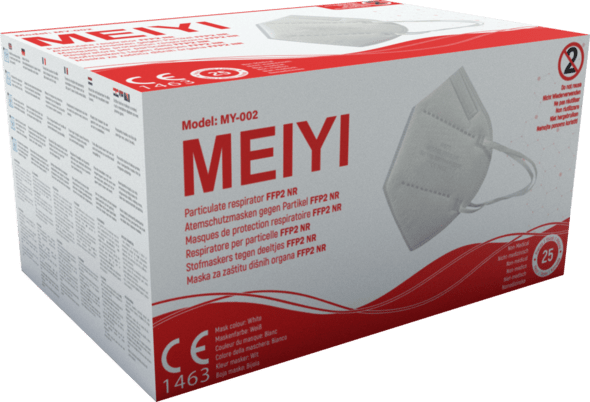The Ultimate Guide to Diagnostic Tests: A Comprehensive Look at Categories, Sample Types, and Protective Gear
MEDICAL EQUIPMENT&PRODUCTS
2/13/20255 min read


Introduction: The Importance of Diagnostic Testing in Modern Healthcare
In the world of modern healthcare, diagnostic tests play a crucial role in detecting and managing diseases, infections, and overall health conditions. From everyday routine tests to those used in emergency medical situations, these tests provide invaluable insights that guide treatment decisions. As the world continues to face global health challenges like COVID-19, the demand for accurate and reliable diagnostic tools has never been greater.
This blog will explore the various categories of diagnostic tests, including fertility, cardiovascular, infectious diseases, and more. We will also dive into sample types, the role of respiratory masks in protecting healthcare professionals and patients, and the future of diagnostic technology.
Categories of Diagnostic Tests
Diagnostic tests are classified into various categories, each designed to provide crucial information about a patient's health. These tests range from fertility evaluations to cancer detection, and everything in between. Let’s take a closer look at the key categories.
1. Fertility Tests: Understanding Reproductive Health
Fertility tests are used to assess both male and female reproductive health. These tests help determine the underlying causes of infertility, whether hormonal, structural, or genetic.
1.1 Pregnancy Tests
Pregnancy tests are commonly used to determine whether a woman is pregnant. These tests detect the presence of the hormone human chorionic gonadotropin (hCG) in urine or blood. Urine tests are typically done at home, while blood tests are more sensitive and are conducted at medical facilities.
1.2 Ovulation Tests
Ovulation tests are designed to help women understand their fertility cycles. By detecting the surge of luteinizing hormone (LH), these tests can predict the most fertile days in a woman's menstrual cycle, making them invaluable for couples trying to conceive.
2. Tumor Markers: Early Detection of Cancer
Tumor marker tests are blood tests that help detect the presence of specific substances produced by cancer cells. These tests can be used for screening, diagnosis, and monitoring treatment effectiveness.
2.1 PSA Tests
The Prostate-Specific Antigen (PSA) test is used to screen for prostate cancer. Elevated levels of PSA can indicate the presence of prostate cancer, though other conditions can also cause an increase in PSA levels.
3. Inflammatory Markers: Identifying Inflammation in the Body
Inflammation is the body's natural response to injury or infection. However, chronic inflammation is often a sign of underlying conditions like autoimmune disorders or infections.
3.1 PCT Tests
Procalcitonin (PCT) is a biomarker that can indicate bacterial infections. PCT testing helps differentiate bacterial infections from viral ones and is crucial in the early diagnosis of sepsis.
3.2 CRP Tests
C-Reactive Protein (CRP) levels increase when there is inflammation in the body. CRP tests are commonly used to monitor conditions such as rheumatoid arthritis, infections, and heart disease.
4. Cardiovascular Tests: Assessing Heart Health
Cardiovascular health is a critical aspect of overall well-being. Several tests help doctors assess heart health and identify potential issues like heart disease or stroke.
4.1 NT-proBNP Tests
N-terminal pro B-type natriuretic peptide (NT-proBNP) is a biomarker released by the heart in response to increased pressure. High levels of NT-proBNP can indicate heart failure or other cardiovascular conditions.
4.2 D-dimer Tests
D-dimer tests measure the presence of fibrin degradation products in the blood. Elevated levels of D-dimer may indicate the presence of blood clots, a key risk factor for deep vein thrombosis, pulmonary embolism, and other clotting disorders.
4.3 Troponin Tests
Troponin is a protein released into the blood when heart muscle cells are damaged. Troponin tests are commonly used in emergency settings to diagnose heart attacks.
5. Infectious Disease Tests: Identifying Pathogens
Infectious diseases are caused by microorganisms such as bacteria, viruses, and fungi. Diagnostic tests in this category help identify the specific pathogen responsible for the infection, allowing for targeted treatments.
5.1 Monkeypox Tests
Monkeypox is a rare viral infection that has recently attracted global attention. Diagnostic tests for monkeypox help detect the virus early, enabling timely interventions and containment efforts.
5.2 RSV Tests
Respiratory Syncytial Virus (RSV) is a common respiratory virus that affects the lungs and airways. RSV testing is crucial for diagnosing infections in infants, the elderly, and immunocompromised patients.
5.3 Influenza Tests
Influenza, or the flu, is a contagious respiratory infection. Rapid flu tests help identify the presence of influenza viruses, guiding treatment decisions and preventing further transmission.
5.4 COVID-19 Tests
COVID-19 testing remains a cornerstone in the global response to the pandemic. There are several types of tests used to detect the virus, including PCR tests, rapid antigen tests, and antibody tests.
Types of Samples for Diagnostic Tests
Diagnostic tests can be performed using various types of samples, each providing different insights into a patient’s health status. Let’s look at the most common types of samples used in diagnostic testing.
1. Nasal and Throat Swabs
Nasal and throat swabs are commonly used for respiratory disease testing, including COVID-19, RSV, and influenza. These swabs collect samples from the upper respiratory tract and are essential for accurate viral detection.
2. Urine Tests
Urine tests are commonly used for pregnancy tests, kidney function assessments, and the detection of various diseases such as urinary tract infections (UTIs). They can provide valuable information about a patient's overall health.
3. Stool Tests
Stool samples are used to detect gastrointestinal diseases, including infections caused by bacteria, viruses, and parasites. They are also used for screening colorectal cancer through tests like FOBT (Fecal Occult Blood Test).
4. Blood Tests
Blood samples are one of the most commonly used types of diagnostic tests. Blood tests can assess various health markers, including cholesterol levels, blood sugar, organ function, and the presence of infections or diseases like cancer.
Respiratory Masks: Protection Against Infectious Diseases
Respiratory masks are a vital part of personal protective equipment (PPE) in healthcare settings, especially when dealing with airborne diseases like COVID-19. Masks help reduce the transmission of infectious agents from person to person.
1. Disposable Masks
Disposable masks are designed for single-use and are commonly used in everyday healthcare settings. They are designed to protect the wearer from respiratory droplets and airborne particles.
2. FFP2 Masks
FFP2 masks provide a higher level of protection compared to disposable masks. These masks filter out at least 94% of airborne particles, making them effective for use in environments where higher protection is necessary, such as in hospitals or during pandemics.
3. FFP3 Masks
FFP3 masks offer the highest level of protection, filtering out at least 99% of airborne particles. These masks are used in environments where there is a high risk of exposure to harmful pathogens.
Conclusion: The Future of Diagnostic Testing and Protection
The future of diagnostic testing is incredibly promising, with advancements in technology driving more accurate, faster, and non-invasive tests. As the world continues to evolve, so will the tools we use to detect and manage health conditions.
At the same time, the importance of protective equipment like respirators and masks cannot be overstated. As infectious diseases remain a global concern, ensuring that healthcare workers and the public are adequately protected will continue to be a top priority.
By understanding the different categories of diagnostic tests, the types of samples used, and the role of protective gear, we can better navigate the complexities of modern healthcare and contribute to the ongoing fight against disease.
Call to Action: If you're looking to upgrade your diagnostic tools or invest in high-quality respiratory masks, be sure to explore the full range of options available from trusted suppliers. Reach out today to get more information or place an order for the products you need to keep your healthcare operations running smoothly.


